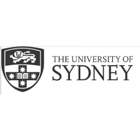近些年,国民生活水平不断提高,中国国际地位和影响力也越来越重,于是很多人选择出国留学,美国是世界上教育质量最高的国家之一,很多世界著名大学汇集于此,在这里可以开阔眼界,了解最前沿知识,培养领导力。因此,美国大学深受留学生的欢迎。不过,在申请之前,申请文书是必需品,那么,美国大学申请文书该如何书写呢?哪些优秀范文值得参考,接下来,就随小编来看看吧,希望对大家有所帮助:

简历比较好理解,就是仔细回顾自己以往做过的事情,将这些经历分成不同的部分,如教育背景,工作或实习经历,研究经历,课外活动,个人兴趣爱好,等一一罗列起来,其实大家可能觉得简历是个简单的东西,但却不然!尤其是英文简历,准确的英文用词是能够瞬间提升简历逼格的法宝!曾帮N多同学写过或是润色过CV,有些人的简历通篇都是have, make,take这些简单的词汇,读起来就是索然无味,切记切记,一篇高大上的CV一定是内容全面,重点突出,格式统一,用词丰富而准确的!
简要的说,就是让你写出自己的申请动机,让招生委员会的人了解你,认识你。
根据留学专家写过几百篇的经验来看,PS是要回答这么几个核心的问题:
1. 你为什么要选择这个专业,你未来的职业目标是什么?
2. 你为什么要选择入读这所学校?
3. 我们学校为什么要录取你而不是别人?
当然,我不是说你的PS要一成不变是三段结构,分别回答这三个问题,那样太过呆板!我的意思是如果我能够从你的PS(或许它的结构非常unique)中找寻到这三个问题的答案,那么这篇PS至少是不会为你的整体申请减分的!
研究生的申请,除了少数的研究型硕士之外,大多是授课型的,学生毕业后的去向就是职场,那么有着明确的职业目标,并且知道申请的这个专业和学校能够如何帮助自己实现这个目标就是非常重要的!比如,想要去美国读金融的同学很多希望以后能够留在美国工作,但在实际的PS当中,我并不建议大家真的这么去写,首先美国人对于外来人口就业会有小小的排斥。
另外,大家都知道,在美国,外国学生想要进入顶尖的金融金字塔有多难,更别说你一厢情愿的投行里了!所以在制定申请策略时,这些实际的因素必须被考虑到,也必须通过PS来体现出来!
推荐信是从第三方的角度来描述一个申请者的优缺点,通常需要两到三封,组合是两个学术推荐人,一个学术推荐人一个职场推荐人,或两个学术推荐人一个职场推荐人!
推荐信的重要性是有争议的,有人觉得现在国外的招生官知道中国学生一般是自己写然后找都是签个名,所以觉得推荐信不重要!但在朗盟,说实话,我并不知道这个可信度有多高,所以对待推荐信,我们也采取了同样谨慎而认真的态度,因为说不定有个学校就是因为你推荐信的某句话而决定要你了呢!所以申请的任何一个环节我们都不可能粗心大意!
推荐人的选择,我只坚持一个简单的原则:找和你的专业领域相关,对你熟悉并且有话说的人!其它的大牛,牛推这些在我这里都不是关键,不需要执着!
如果大家研究过几所学校的录取题目,会发现我们一开始准备的东西可能是非常general的,并不能直接拿来就用,而必须要经过一道很复杂也很重要的抛光手续!
这是因为不同的学校通常都会将自己的申请题目设计成好几道,第一道很可能就是我们通常意义上的PS,但另外的题目则是希望了解申请者的各个方面,比如领导力,个人的兴趣爱好或者其它你想要招生官分享的东西!总之,所有这些,我都称之为essays,曾经有一所学校,为申请的同学写了七篇essay,也真是醉了!
如果你想申请传媒,新闻,社会学等这些领域的研究生,writing sample是学校设计出来专业测试你的英文水平的!因为这些专业,一旦入读,有着大量的paper要读,也有着大量的paper要写,所以在录取时对英语的水平要求就会相应高一些!
College: University of Pennsylvania
If an undergraduate's time is spent eating, working, socializing, and sleeping, I expect that I'll spend large chunks of my time in the cafeteria, the libraries, and the dorms. My days will most definitely be hectic. As I run across the quad to my history class, I'll already be thinking of where I'll be heading after that.
Sometimes I'll be running to a big round table in the Food Court. This table seems to be a magnet for my eclectic friends. One of the guys, a saxophonist with whom I play the oboe in an ensemble, is trying to get his own avant-garde band some places to play. Another student writes an editorial column for the Daily Pennsylvanian; he always seems to be searching for a hot topic with which he can stir up a ruckus. A French major who sits next to me in French class uses French verbs in conversation, causing some confusion for the rest of us. We tend to talk about everything from the Beastie Boys to the controversy over political correctness. We sit for hours sharing our mashed potatoes and discussing activities to collectively embark on for the weekend. I suggest some rock climbing in the Shawangunks of New York State or an art show in Philadelphia.
After my extended repast, I'll be heading for a good place to study. When I have detailed notes to take on the reading for my Social History of China course, I know that the Quad will be way too busy and social for me to get any sizable amounts of work done. I'll have to slip away to the Furness Library. It is so quiet in there that you can hear the students breathing. In the other libraries there is too much commotion caused by people hustling around as they search for references. If I worked in the Van Pelt Library, I know I would speak to everyone who passed by my carrel. Given my extroverted nature, I am safer in a library like Furness.
At the end of my day, I'll be heading for my dorm, where the door to my room is hardly ever closed. The people who live in my dorm are definitely an energetic group. Just like molecules being heated in a beaker, they can't sit still. They bounce all over the dorm's halls, in and out of my room, telling me random ridiculous things as they procrastinate about their work. My roommate and I seem to be from different planets. She grew up in Poland, Maine, the small town where my camp was, and I grew up in the big city of Manhattan. At first I'll think that all we have in common is our passion for chocolate. But after living with her for a few weeks, I'll know that we were destined to be together. She'll know when she comes back from a day that just didn't go right at all that I will be there for her to complain to, and I'll understand. She'll do likewise for me. We'll make each other chicken noodle soup and coffee to keep us going on long nights of work. I'll help her decide whether she has a thesis for her paper on Macbeth and then proofread it for her. She'll explain to me again why humans can 't digest cellulose--and then try to convince me that it's better to get up early and work rather than stay up late. We'll order some takeout from her favorite Cantonese restaurant. At 2 a.m., on full stomachs, we'll get some sleep before our 9:00 classes, when once again I'll be rushing across Locust Walk to get to my history class, thinking about where I'll be heading after that.
Comments
The writer deals inventively with the difficult question "Why are you and this school a good match?" Instead of telling the admissions committee what they already know about the college's curriculum, athletic program, or academic reputation, she tells them what they do not know about: herself. She answers the question by imagining herself in a college routine. She then makes that routine specific to Penn through references to the school newspaper, campus buildings and walks, and a particular history course.
What she reveals about herself along the way from cafeteria to library to dorm gives this well-structured essay its zest. The reader learns that she plays the oboe, is a rock climber, goes to art shows, studies history, is extroverted, loves chocolate, treasures her roommate, does not fully understand why humans cannot digest cellulose, and happily digests Chinese takeout at 2 A.M. She is confident enough to write in her own voice, using informal language in an informal essay (''chunks of time,'' ''way too busy and social,'' ''random ridiculous things''). Her lively sense of language comes through in sentences such as, ''It is so quiet in [the Furness Library] that you can hear the students breathing,'' and in her comparison of her dorm neighbors to ''molecules being heated in a beaker.''
She is as specific about other details in the essay as she is about herself. The net effect of these well-chosen details--for instance, about her friends' varied interests or how she and her roommate cooperate in their work--suggests that the writer has long been attending the school to which she is applying. Such a commitment to a particular school will impress admissions officers.
综上所述,以上讲的就是关于美国大学申请文书写作技巧及优秀范文赏析的相关问题介绍,希望能给各位赴美留学的学子们指点迷津。近年来,赴美留学一直是广大学生最热门的话题,同时,很多学生对于签证的办理、院校的选择、就业的前景、学习的费用等诸多问题困扰不断,别担心,IDP留学专家可以为你排忧解难,同时,更多关于赴美留学的相关资讯在等着你,绝对让你“浏览”忘返。在此,衷心祝愿各位学子们能够顺利奔赴自己心目中理想的学校并且学业有成!
........................................................................................................................................................................................................................
相关资讯阅读





